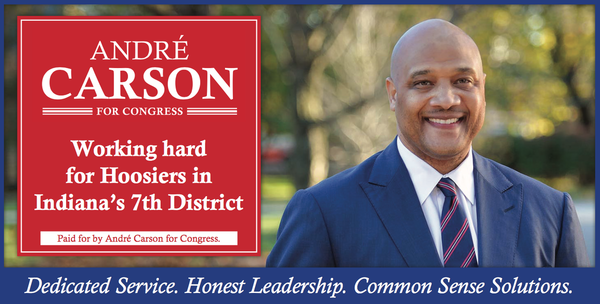Conquering the South; Chattanooga unionization vote a victory decades in the making
“When you are an anvil, hold yourself still. When you are a hammer, strike.” — George Herbert (1593-1633), British theologian
The wheel of history is turning. Just before midnight on April 19, after three days of balloting, the National Labor Relations Board announced that workers at the Volkswagen plant in Chattanooga, Tennessee, had voted to join the United Autoworkers Union by a whopping 73%.
The historic nature of this victory for organized labor in the South is just beginning to sink in across the rest of the country. After all, the common wisdom has been that unions could never win organizing drives in the southern states that made up the old Confederacy.
And there has been plenty of historical evidence to confirm that opinion.
After all, Republicans Richard Nixon and Ronald Reagan both announced their intention to run for president at rallies in the South — part of the 1960s and beyond Southern Strategy of the GOP.
And it wasn’t just about gaining support from folks still fuming about the civil rights movement. Labor unions were seen as the tools of radical northerners spreading socialism.
Throughout the 20th century, the idea that workers should have a basic right to democracy in the workplace never gained much traction in the old agricultural economy of the South. The old idea that the land-owning wealthy were rich because they deserved to be rich — and that the peasant stock were poor because they deserved to be poor — was still widely believed, even among the poor themselves.
So labor unions focused primarily on organizing in the factories of the industrialized north. Organizing anywhere was never easy, but it was always easier in the north.
But the AFL-CIO and the UAW were caught off guard when foreign automakers began building their cars for sale in America right here in the USA, and focused almost entirely on building these factories in the southern states, where politicians were eager to give them incredibly substantial corporate tax abatements — unheard of at the time — and where unionization seemed much less likely.
The strange irony in this story of transplanting factories to the USA is that all the European-owned auto companies are completely unionized in their home countries.
How is it, you might ask, that federal trade deals allow them to build these factories here while actively fighting American unionization?
Well, by the 21st century, most of the union-organizing problem had little to do with differences in latitudes or differences in attitudes of workers. It had everything to do with political power.
During recent decades, the United Auto Workers has made several attempts to organize workers at these foreign-owned auto plants, but failed each time. In fact, two previous times the UAW failed to get a majority of workers to join the union at the Chattanooga, Tennessee, VW plant.
Each time, Republican politicians began holding news conferences, claiming that if workers joined the UAW, the owners of these plants would begin moving their operations to Mexico or South Korea or China — anywhere they could avoid the economic “problems” of giving workers a raise or, heaven forbid, allow them to engage in the company decision-making process.
The sky will surely fall if employees vote to join a union because workers are incapable of making good decisions, and they will drive any company into economic ruin. Right?
On the Tuesday before the UAW vote began, five Republican governors of southern states with nonunion automakers joined Republican Tennessee Gov. Bill Lee in a letter to the media, blasting the union election and saying, “Unionization would certainly put our states’ jobs in jeopardy.”
But the difference today is that people who live in these states are not the same timid, naive souls who didn’t believe in themselves generations ago. They have the same access to internet media sources and information that others have access to across the USA.
When the UAW won historic gains from the Detroit 3 automakers last fall, VW passed along many of those same gains to their nonunion workforce. And now, these workers are getting hip to the tricks of management and the politicians who tried to scare them into complacency.
As a former union president, I did my share of UAW organizing back in the day. I would tell people that increased raises and benefits might always be possible. But the real value of union membership is dignity on the job, the ability to be part of the decision-making process with your employer and the right to file a grievance when you believe you have been mistreated.
If you listen to the testimonials coming out of Tennessee, this is what these new UAW members are celebrating. They have found a new sense of dignity and respect on the job — and the sky did not fall.
For most of the past 40 years, the union movement has been like an anvil, fighting to keep the wages and benefits of its members intact in an uncertain economic and political climate.
The next stop in this UAW organizing drive is a mid-May union vote at a Mercedes Benz plant in Vance, Alabama.
International UAW President Shawn Fain has pledged to continue this organizing all across the nonunion South.
He has picked up theologian George Herbert’s hammer and is moving across the states of the old Confederacy like Abe Lincoln’s Union Army — leaving freedom and empowerment for the working class in his wake.
It’s about time. God knows, it’s about time.
Randy Schmidt, a guest editorial Op-Ed writer, is president of the Indiana Alliance for Retired Americans


